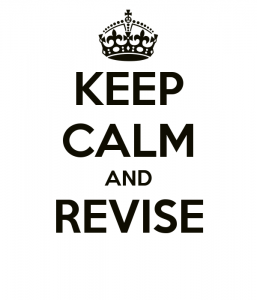I am just going to come out and say it: I have been a long-time proponent of universal, single-payer style heath care for our nation. I am a firm believer that private insurance companies should play no role whatsoever in the provision of health insurance for Americans. It is for this reason that I was so dismayed when President Obama proposed a health care reform regime with the existing private health insurance infrastructure (and Medicaid) as its foundation. I was even among those political wonks who wanted Congress to vote down the Affordable Care Act (ACA) once it became apparent that the ACA exchanges were not going to offer a “public option” to exchange participants. In the years since the law’s passage, I have become an ardent supporter of the law because it is moving our nation in the direction of universal health insurance coverage.
As a law student and constitutional law scholar, I am surprised that the Supreme Court opted to take King on appeal. By the time SCOTUS granted certiorari, the circuit split had been resolved by an en banc ruling of the DC Circuit. What is more troubling is that the petitioners do not appear, by any objective standard, to have standing to bring this suit. Standing is a concept that all first year law students are well acquainted with; it is equally obvious that the petitioners have suffered no judicially cognizable injury by operation of the IRS regulation interpreting the exchange subsidies as applicable to state-run and federally-run insurance exchanges. I have read the petitioners’ standing argument — it is so ridiculous that it does not bear recital here.
Even if one is able to get past the standing issue, an interpretation of the challenged statutory language that petitioners claim limits the availability of subsides to state-run insurance exchanges runs contrary to the canons of statutory interpretation. A comprehensive law that regulates the health insurance system of an entire nation and affects a good portion of our nation’s economy should not hinge on the meaning of a term that is ambiguous in isolation, but definite and decisive when taken in the context of the statute. The term “state,” as used in the ACA, has a broad meaning that encompasses “state” in the scholarly sense of a nation-state and the customized meaning of “state” as a sub-national unit of government.
There are many moral and political arguments that one can make in favor of upholding the decisions of the DC and Fourth Circuits. As a law student writing from a legal perspective, I put these arguments to the side. What is unfortunate for the four (or more) members of the Supreme Court who voted to take up this silly challenge is that the law (and precedent) is not on their side. I predict that the Supreme Court will uphold the decisions of the DC and Fourth Circuits on a 5-4 vote, with Chief Justice Roberts joining the court’s four moderate justices.
 I had a student a couple of years ago who described herself as a “one-sit wonder.” That is, in all of her previous schooling, she was quite adept at pounding out a more than serviceable paper in one sitting. Once she arrived in law school, she realized that style of writing was probably not going to work. (And, to be fair, it probably shouldn’t work in any other setting, either, but I do realize that it’s the way most students do write.)
I had a student a couple of years ago who described herself as a “one-sit wonder.” That is, in all of her previous schooling, she was quite adept at pounding out a more than serviceable paper in one sitting. Once she arrived in law school, she realized that style of writing was probably not going to work. (And, to be fair, it probably shouldn’t work in any other setting, either, but I do realize that it’s the way most students do write.)